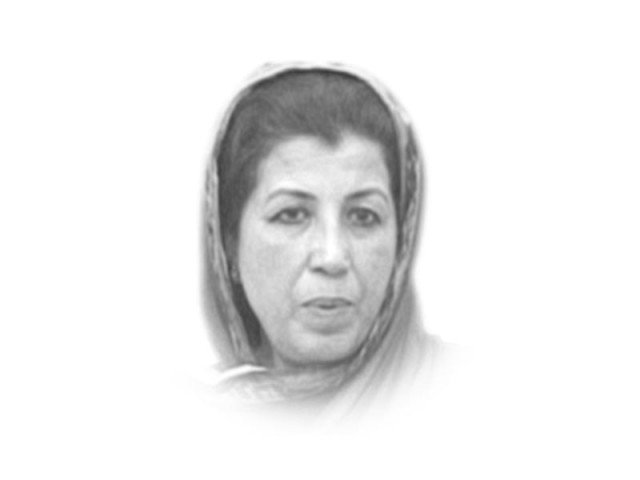Pakistan’s security framework
An effective implementation of a government policy will succeed only if it has support on the ground.

The writer is the Executive Director of PAIMAN Trust and a former caretaker information minister of Khyber-Pakhtunkhwa
In September, the prime minister called an All Parties Conference to discuss a new national counterterrorism and extremism policy that the government has developed. We were surprised to learn about the drafting of this policy from the media, as many of us are already working to prevent violence and promote tolerance in our own communities. We have many lessons learned that we could share from our years of work on the ground and are disappointed that civil society groups were not consulted in this drafting.
As civil society groups have a background in working around the issue of violent extremism using innovative and indigenous methods in addressing it, we urge the government to take the following steps to help strengthen the viability of this strategy. Firstly, the process of developing this new strategy must be inclusive and include consultations with a broad range of stakeholders, including representatives of civil society, members of the women’s parliamentary caucus and women in the security sector.
Secondly, the government needs to evaluate what work is already happening in Pakistan on a smaller scale to counter terrorism and how it can coordinate and support that work before completely reinventing the wheel. Reports indicate that the new draft policy contains five pillars of how to combat extremist organisations: dismantle, contain, prevent, educate and reintegrate. Community policing mechanisms have already been established in Sindh that are aimed at building trust with local communities to increase crime reporting and intelligence sharing. The government should evaluate whether these mechanisms could be replicated on a national level in all provinces and how they could be used as tools for information collection and policing.
Thirdly, there must be recognition that women have a role to play in all of the components of this new strategy, including those that address security. Women in our society have access to homes and information that their male counterparts do not and cannot have. Women can carry out body searches of other females, perform security checks of homes that have women in them, and gather information from and/or conduct interrogations of other females.
Women-led civil society organisations already play a critical role in many or all of the intended pillars. Even if the pillars of this strategy shift do not all come to fruition, it is essential that the government recognises the vital contributions of women-led civil society organisations to curtailing violence and promoting tolerance. Organisations like the PAIMAN Alumni Trust are working to prevent vulnerable youth who have been influenced by extremist ideology and evaluating and reforming curricula and textbooks to root out messages contributing to intolerance.
Many years of research and experience has informed that in order to move beyond a design on paper, an effective implementation of a government policy will succeed only if it has support on the ground. Not only do women need to be a part of the creation of the said policy, but the eventual strategy needs to incorporate the unique role women are already playing in all of the strategy’s pillars.
Published in The Express Tribune, December 31st, 2013.
Like Opinion & Editorial on Facebook, follow @ETOpEd on Twitter to receive all updates on all our daily pieces.















COMMENTS
Comments are moderated and generally will be posted if they are on-topic and not abusive.
For more information, please see our Comments FAQ